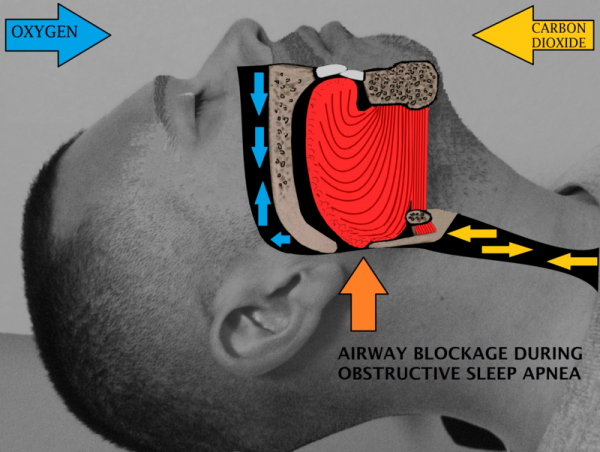
Snoring : How to stop snoring for better health
Snoring is a health condition that can disrupt day to day activities. If you or your loved ones are suffering from this disruption it is better to take proper precautions. Snoring is caused by vibration of the soft palate (the soft part of the roof of the mouth) as the lungs strain to inhale oxygen through obstructed airways. Typically, this occurs when the muscles that keep the airways open become too relaxed or excess tissue accumulates nearby and obstructs air flow. Any condition or substance that promotes muscle relaxation or a build-up of fatty tissue can have this effect.
These include:
- Drinking alcohol
- Taking sedating medications such as sleeping pills, cold medicines, or antihistamines.
- Sleeping on an overly soft or large pillow, or sleeping on your back.
- Being overweight.
The following conditions can affect the airway and cause snoring:
- Anatomy of mouth: Having a low, thick soft palate can narrow your airway. People who are overweight may have extra tissues in the back of their throat that may narrow their airways. Likewise, if the triangular piece of tissue hanging from the soft palate (uvula) is elongated, airflow can be obstructed and vibration increased.
- Alcohol consumption: Snoring also can be brought on by consuming too much alcohol before bedtime. Alcohol relaxes throat muscles and decreases your natural defenses against airway obstruction.
- Nasal problems: Chronic nasal congestion or a crooked partition between your nostrils (deviated nasal septum) may contribute to your snoring.
- Sleep apnea : Snoring also may be associated with obstructive sleep apnea. In this serious condition, your throat tissues partially or completely block your airway, preventing you from breathing.
Habitual snoring may be more than just a nuisance. Depending on the cause of your snoring, it may result in:
- Daytime sleepiness
- Frequent frustration or anger
- Difficulty concentrating
- A greater risk of high blood pressure, heart conditions and stroke
- An increased risk of behavior problems, such as aggression or learning problems, in children with obstructive sleep apnea
- An increased risk of motor vehicle accidents due to lack of sleep
- Disruption of bed partner’s sleep
There are numerous products that claim to treat snoring. However, in most cases, simple lifestyle changes can stop snoring. They include:
- Do not drink alcohol within three hours of bedtime.
- Avoid sedatives and antihistamines, especially at bedtime.
- If you are overweight, take regular exercise to lose some weight and also reduce your calorie intake.
- If you have allergies, try to eliminate allergens in the bedroom, such as removing pets from the bedroom, and regularly washing your bed linen in hot water to remove house dust mites and any mould spores.
- Sleep on your side.
- Use a humidifier if the air in your home is too dry.
- Quit smoking. Tobacco smoke irritates mucous membranes, so your throat swells, narrowing the airway. Smokers also have more problems with nasal congestion.
- Elevate the head of your bed. An easy way to do it is to place several flat boards under the legs at the top end of the bed. A couple of short lengths of two-by-eights or two-by-tens under each leg should raise the bed enough to do the trick.
- Establish regular sleep patterns.
Herbal help to stop snoring:
1) Peppermint Oil :The anti-inflammatory properties of peppermint oil can help in reducing inflammation in the membranes of the inner lining of your nostrils. This is enough to stop snoring if it happens due to nasal congestion.
2) Ayurvedic Ghee or clarified butter: Ghee or clarified butter has many medicinal properties. It is used for curing many diseases including snoring. Not only plain ghee but Brahmi ghee too is used for the purpose. For making this ghee, Brahmi herb is boiled along with pure ghee made from cow’s milk.
3) Ginger as anti-inflammatory agent: Ginger has been known for its various properties along with its anti-inflammatory and anti-bacterial effects. It also increases secretion of saliva which then coats the throat to provide you with a soothing effect. When honey is used with ginger, it further lubricates the tissues and also opens up nasal cavity as well as throat by reducing the swelling.
4) Eucalyptus Oil :Eucalyptus oil can excellently liquify the mucus so as to keep your airways clear for smooth breathing. Eucalyptus oil is also a natural anti-inflammatory agent which when applied to your nose, reduces swelling in the inner lining of the nostrils and nasal passageways. Put few drops of eucalyptus oil in hot water and inhale steam to reduce inflammation of nose.
5) Mint Tea :Just as peppermint oil can be useful for curing snoring, mint tea too can help it. Mint contains menthol which reduces mucous from lungs.
References:
Image credit: https://commons.wikimedia.org/wiki/File:Airway_obstruction.png
Attribution: Drcamachoent / CC BY-SA (https://creativecommons.org/licenses/by-sa/4.0)
Author: Sumana Rao | Posted on: September 22, 2015
« Detrimental effects of Junk Food on children Super Brain Yoga (Tappu Karnam) »






















Write a comment